BMW X5 VS Toyota C-HR – Specs, Efficiency & Price Comparison
Find out now which car fits your needs better!
The BMW X5 (SUV) is powered by a Diesel MHEV, Petrol MHEV or Plugin Hybrid engine and comes with a Automatic transmission. In comparison, the Toyota C-HR (SUV) features a Full Hybrid or Plugin Hybrid engine and a Automatic gearbox.
When it comes to boot capacity, the BMW X5 offers 650 L, while the Toyota C-HR provides 447 L – depending on what matters most to you. If you’re looking for more power, you’ll need to decide whether the 625 HP of the BMW X5 or the 223 HP of the Toyota C-HR suits your needs better.
There are also differences in efficiency: 0.80 L vs 0.80 L. In terms of price, the BMW X5 starts at 77100 £, while the Toyota C-HR is available from 29100 £.
Compare all the key specs now and find out which model fits your lifestyle best!
BMW X5
The BMW X5 embodies a perfect blend of luxury and performance, offering a driving experience that is both dynamic and comfortable. Its elegant design is complemented by a spacious, high-quality interior that prioritises driver and passenger comfort. Advanced technology features ensure that the X5 meets the demands of modern drivers, providing both entertainment and safety on the road.
details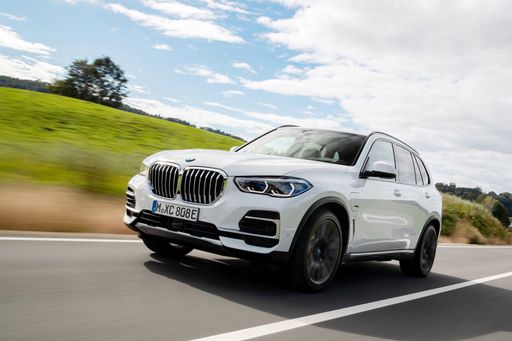 @ press.bmwgroup.com
@ press.bmwgroup.com
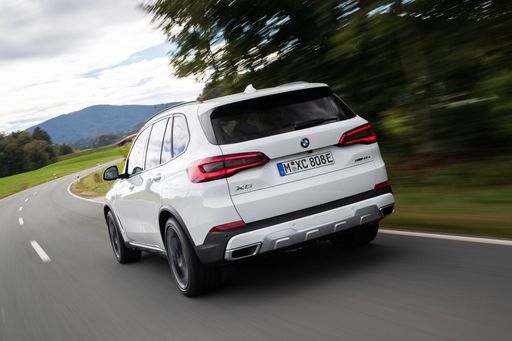 @ press.bmwgroup.com
@ press.bmwgroup.com
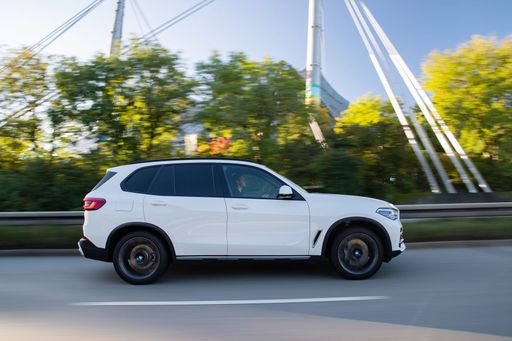 @ press.bmwgroup.com
@ press.bmwgroup.com
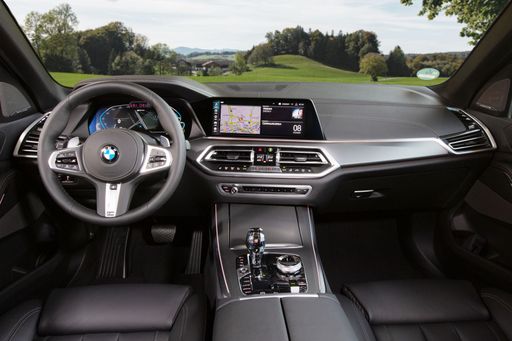 @ press.bmwgroup.com
@ press.bmwgroup.com
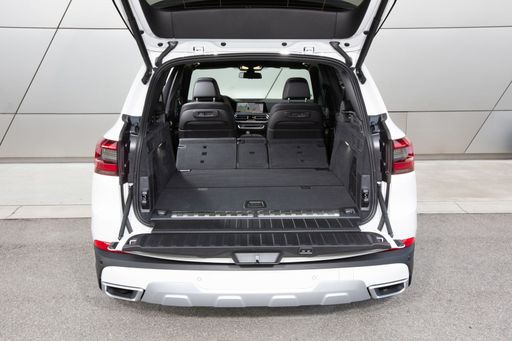 @ press.bmwgroup.com
@ press.bmwgroup.com
Toyota C-HR
The Toyota C-HR stands out with its distinctive and bold design that combines sleek, angular lines with a sporty posture. Its comfortable and stylish interior is equipped with advanced technology features, providing a seamless driving experience. The vehicle offers impressive handling and performance, making it a compelling choice for those who appreciate a blend of practicality and flair on the road.
details @ Toyota
@ Toyota
 @ Toyota
@ Toyota
 @ Toyota
@ Toyota
 @ Toyota
@ Toyota
 @ Toyota
@ Toyota

|

|
|
|
|
Costs and Consumption |
|
|---|---|
|
Price
77100 - 143500 £
|
Price
29100 - 42800 £
|
|
Consumption L/100km
0.8 - 12.9 L
|
Consumption L/100km
0.8 - 5.1 L
|
|
Consumption kWh/100km
-
|
Consumption kWh/100km
-
|
|
Electric Range
105 km
|
Electric Range
68 km
|
|
Battery Capacity
25.70 kWh
|
Battery Capacity
-
|
|
co2
19 - 291 g/km
|
co2
17 - 115 g/km
|
|
Fuel tank capacity
69 - 83 L
|
Fuel tank capacity
43 L
|
Dimensions and Body |
|
|---|---|
|
Body Type
SUV
|
Body Type
SUV
|
|
Seats
5
|
Seats
5
|
|
Doors
5
|
Doors
5
|
|
Curb weight
2240 - 2495 kg
|
Curb weight
1505 - 1755 kg
|
|
Trunk capacity
500 - 650 L
|
Trunk capacity
350 - 447 L
|
|
Length
4935 - 4948 mm
|
Length
4362 mm
|
|
Width
2004 - 2015 mm
|
Width
1832 mm
|
|
Height
1755 - 1765 mm
|
Height
1558 - 1564 mm
|
|
Payload
565 - 705 kg
|
Payload
375 - 425 kg
|
Engine and Performance |
|
|---|---|
|
Engine Type
Diesel MHEV, Petrol MHEV, Plugin Hybrid
|
Engine Type
Full Hybrid, Plugin Hybrid
|
|
Transmission
Automatic
|
Transmission
Automatic
|
|
Transmission Detail
Automatikgetriebe
|
Transmission Detail
-
|
|
Drive Type
All-Wheel Drive
|
Drive Type
Front-Wheel Drive, All-Wheel Drive
|
|
Power HP
298 - 625 HP
|
Power HP
140 - 223 HP
|
|
Acceleration 0-100km/h
3.9 - 6.1 s
|
Acceleration 0-100km/h
7.4 - 9.9 s
|
|
Max Speed
233 - 250 km/h
|
Max Speed
175 - 180 km/h
|
|
Torque
540 - 750 Nm
|
Torque
-
|
|
Number of Cylinders
6 - 8
|
Number of Cylinders
4
|
|
Power kW
219 - 460 kW
|
Power kW
103 - 164 kW
|
|
Engine capacity
2993 - 4395 cm3
|
Engine capacity
1798 - 1987 cm3
|
General |
|
|---|---|
|
Model Year
2023 - 2024
|
Model Year
2024 - 2025
|
|
CO2 Efficiency Class
G, B
|
CO2 Efficiency Class
C, B
|
|
Brand
BMW
|
Brand
Toyota
|
BMW X5
The BMW X5: Setting the Benchmark for Performance and Luxury
As one of the pioneers in the luxury SUV segment, the BMW X5 continues to set new standards with its blend of performance, comfort, and cutting-edge technology. The latest iterations offer a range of powerful engines, advanced hybrid systems, and a suite of innovative features that cement its status as a premium choice for discerning drivers.
Engine Power and Hybrid Innovations
The BMW X5 is available with a choice of robust powertrains, including diesel, petrol, and plug-in hybrid options. The range-topping models showcase impressive power outputs, with the potent X5 M Competition boasting 625 PS. Meanwhile, the plug-in hybrid models, such as the xDrive50e, demonstrate BMW's commitment to sustainability by offering remarkable efficiency with an electric-only range of up to 97 km and a CO2 efficiency class of as low as 21 g/km.
Technological Advancements
The 2023-2024 BMW X5 integrates state-of-the-art technology to enhance the driving experience. The latest versions come equipped with a Steptronic Sport automatic transmission system, ensuring seamless gear shifts and optimal performance. The xDrive all-wheel-drive system guarantees superior traction and control, regardless of the driving conditions, making it perfect for both urban environments and off-road adventures.
Design and Dimensions
With sleek exterior dimensions, the BMW X5 exudes an aura of elegance and power. Measuring up to 4948 mm in length, 2004 mm in width, and up to 1765 mm in height, it presents a commanding road presence. Inside, the SUV offers ample space with a boot capacity ranging from 500 to 650 litres, ensuring that you have all the room needed for both everyday items and larger cargo.
Comfort and Interior Features
The X5's interior is a masterclass in luxury and functionality, designed to offer maximum comfort for all occupants. With seating for five, the cabin is crafted with the finest materials and hosts a range of technological features, including an advanced infotainment system and intuitive cockpit controls. The M Sportpaket configurations further enhance the vehicle's sporty pedigree with premium equipment and design details.
Performance and Handling
The BMW X5 demonstrates impressive dynamics, with acceleration from 0-100 km/h achievable in just 3.9 to 6.1 seconds, depending on the model. Its powerful engines and sport-tuned suspension provide exceptional agility and stability, making the X5 not only a comfortable cruiser but also a thrilling performer on twisty roads.
Economical Considerations
Despite its premium offerings, the BMW X5 is designed with efficiency in mind. Fuel consumption figures for the X5 range from 0.9 to 12.9 L/100 km across different powertrains, providing options for varying needs and driving styles. The monthly costs to run a BMW X5 range from €2070 to €3383, underlining its position as a luxury SUV option with significant value.
Conclusion
The BMW X5 remains a formidable contender in the luxury SUV market, thanks to its amalgamation of power, efficiency, and advanced technology. With a host of choices in terms of engine types and trim levels, there's an X5 to suit the preferences of any driver looking for excellence without compromise. It's not just a vehicle; it's a statement of refined performance.
Toyota C-HR
Revolutionising the Crossover Segment: The Toyota C-HR
The Toyota C-HR has firmly established itself as a standout contender in the compact crossover segment. Known for its distinct design and hybrid capabilities, the C-HR continues to prioritise innovation and efficiency. In this article, we delve into the technical details that make the 2024 iteration a compelling choice for discerning buyers.
Distinctive Design and Aerodynamics
The Toyota C-HR boasts a striking design that combines angular lines with modern aesthetics. This isn't merely for show; the design enhances aerodynamics, improving fuel efficiency and handling. With dimensions of 4362mm in length and a sophisticated structure, the C-HR strikes a balance between urban agility and on-road stability.
Impressive Hybrid Powertrains
The C-HR lineup offers innovative hybrid and plug-in hybrid drivetrain options. The full hybrid system is tailored for those who seek both economic and environmental benefits. It combines a petrol engine with an electric motor to deliver power outputs ranging from 140 to 223 PS, achieving remarkable fuel consumption rates from 0.8 to 5.1 L/100km. The 2.0 Plug-In Hybrid variant impresses with an electric range of 67 km, ideal for urban commuters.
Unmatched Efficiency and Performance
Acceleration figures for the C-HR range from 7.4 to 9.9 seconds to reach 0-100 km/h, ensuring a responsive driving experience. Maximum speeds between 175 and 180 km/h cater to those who appreciate a bit of zest on the open road. Coupled with CVT automatic transmission and both front-wheel and all-wheel-drive configurations, the C-HR adapts to various driving conditions with ease.
Advanced Technology and Features
Inside, the C-HR is equipped with the latest technology aimed at providing connectivity and comfort. The model hosts an array of features across its diverse trim levels, including Business Edition, Lounge, and the sporty GR SPORT. Each variant is designed to meet the demands of different lifestyles, ensuring there's a C-HR model to suit every taste.
Sustainability and Cost Efficiency
With CO2 emissions ranging from 19 to 115 g/km, the C-HR stands as a testament to Toyota's commitment to sustainability. Financially savvy consumers will also appreciate the running cost, with monthly expenses from €959 to €1204, and a cost per km as low as 38.4 cents. Such efficiency makes the vehicle an attractive option for eco-minded buyers.
Conclusion: A Forward-Thinking Choice
The 2024 Toyota C-HR embodies Toyota's forward-thinking approach to automotive innovation, blending eco-friendly hybrid technologies with stylish design and practicality. It offers a glimpse into the future of driving, where efficiency meets elegance. Whether you're a city dweller or an adventure seeker, the C-HR promises a driving experience that is both enjoyable and environmentally conscious.
The prices and data displayed are estimates based on German list prices and may vary by country. This information is not legally binding.
